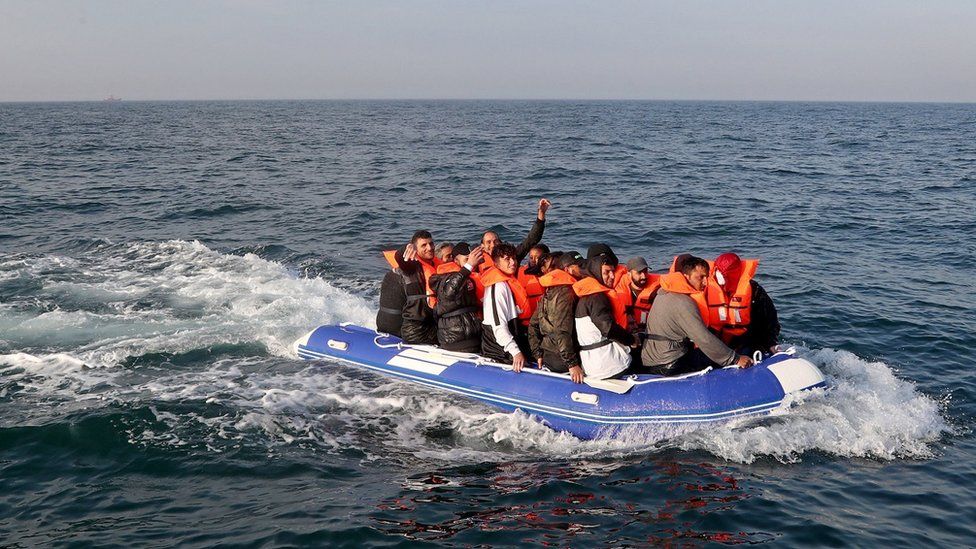ARTICLE AD BOX
 Image source, PA Media
Image source, PA Media
Immigration Minister Robert Jenrick said new fines targeting employers would help to deter dangerous Channel crossings
Fines for businesses and landlords who knowingly support illegal migrants are set to triple under new rules announced by the government.
Firms who are found to have repeatedly employed illegal migrants could face fines of up to £60,000 per breach.
The Home Office argues "illegal working and renting are significant pull factors" for illegal migration.
Immigration Minister Robert Jenrick said the move would help deter perilous channel crossings by small boats.
Under the new punishments, which come into force at the beginning of 2024, businesses will see the civil penalty for employing illegal migrants rise from £15,000 for the first offence to £45,000.
Repeat offenders will see fines triple from £20,000 to £60,000.
Meanwhile, landlords will have fines hiked from £80 per lodger and £1,000 per occupier for a first breach to up to £5,000 per lodger and £10,000 per occupier.
Further breaches could result in penalties of to £10,000 per lodger and £20,000 per occupier, up from £500 and £3,000 respectively.
"Unscrupulous landlords and employers who allow illegal working and renting enable the business model of the evil people smugglers to continue," Mr Jenrick said in a statement.
"There is no excuse for not conducting the appropriate checks and those in breach will now face significantly tougher penalties."
It is unknown how many people reside in the UK illegally. A 2020 study conducted by the Greater London Authority estimated that between 594,000-745,000 undocumented people were living in the country - about 1% of the total population.
Since 2018 some 4,000 civil penalties have been issued to employers for employing undocumented workers, raising more than £74m.
Prime Minister Rishi Sunak has made tackling the number of migrants making the dangerous crossing across the channel one of his government's five main priorities.
But Labour's shadow home secretary Yvette Cooper said penalties issued to firms employing workers illegally had actually fallen by two-thirds since 2016, noting that arrests had also fallen.
"Strengthening penalties must be combined with stronger enforcement action if the government is serious about tackling the problems," the Ms Cooper said.
The Liberal Democrats also out at Sunday's move, with the party's Home Affairs spokesperson Alistair Carmichael calling it "another pointless announcement on the asylum system which will make no meaningful difference".
"A bolder fix is required by ministers, yet they are too arrogant to admit it," Mr Carmichael added.
More than 45,000 people entered the UK via Channel crossings last year, up from about 300 in 2018.
Last month, a controversial new bill was approved by Parliament which will see people removed from the UK being blocked from returning or seeking British citizenship in future.
The home secretary has also been given the duty to detain and remove those arriving in the UK illegally to Rwanda or a "safe" third country.
The move, which could see up to £6bn spent a year on detention and removal, attracted an unusually strong response from the United Nations.
In a joint statement, UN human rights chief Volker Turk and the UN refugees head Filippo Grandi said the bill "will have profound consequences for people in need of international protection".
"This new legislation significantly erodes the legal framework that has protected so many, exposing refugees to grave risks in breach of international law," Mr Grandi said.
The Home Office defended the bill and said the government took its international obligations seriously - noting that nothing in the bill required the government to act in a way which was incompatible with international law.
The UK had the fifth highest number of asylum applications in Europe, behind Germany, France, Spain and Austria in 2022.
With 217,735 applications, Germany had a quarter of all first-time asylum applications within the EU.

 1 year ago
68
1 year ago
68








 English (US) ·
English (US) ·